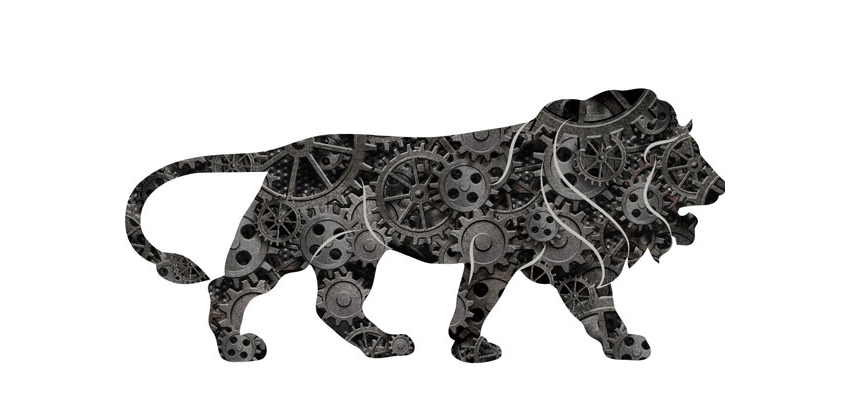For India to succeed in building new products for the world, the engineering discipline has to be instilled in some of our better technology institutions because in the product sector, “Jugaad” and rework will just not do!
Deep thinking is needed if we are to truly build products for India and the world. Will academic and research institutions collaborate with Indian business houses and make this happen?
Many decades ago, there was a joke going the rounds about a competition to make the world’s thinnest copper wire. An American, a Japanese and an Indian made it to the finals. The Japanese showed off his product and the American showed an even thinner wire. Before declaring the winner, the judges checked with the Sindhi who asked them to inspect the American winning wire with a microscope. And they saw the words “Made by USA” inscribed, USA in this case standing for Ulhasnagar Sindhi Association.
Over the years, even as American, German, Japanese and Chinese products jostled for mind space in the minds of discerning customers, India struggled to get even its rampaging IT industry to move beyond the offshore services success story to hardware and software product development. A recent research study by NASSCOM shows that our top two product companies from India are Zoho and Freshworks, which are basically competing in an existing space by offering better value and are still in the half billion- dollar revenue range. It is encouraging that IT products developed by services companies TCS, Infosys and HCL are actually a billion dollars plus in revenue, but where are the scaled product entrepreneurs who can give Apple, Microsoft, SAP or even ChatGPT a run for their money? Why is it that Sam the CEO of Open AI which invented ChatGPT, gets to talk collaboratively with India’s leaders about regulating AI, but makes disparaging comments about the likelihood of Indian engineers building foundational models to compete with the best in Silicon Valley?
A search of the landscape reveals an emerging story. The billion-dollar value Unicorn set includes Druva, Icertis, Freshworks, Zenoti and Mindtickle, which may not be truly revolutionary new products but demonstrate growing capabilities with platforms that has resulted in superb propositions like UPI and ONDC (Open Network of Digital Commerce). India can potentially build platforms that can proliferate across emerging economies in the areas of Agritech and SMEs—Education and even Sustainability Exchanges. Early product movers like Tally and Ramco are still in the ten to hundred million dollar range, but the fact that there are over two thousand product and platform companies growing in the country and the thirteen billion dollar plus annual product revenue, while small in comparison to the two hundred billion services juggernaut, can still be proud that Deep Tech and Business to Business Software as a Service (B2B SaaS) companies are sprouting everywhere with strong value propositions and scaling revenues.
In a fast-growing Indian economy, the opportunities for products to proliferate is tremendous and at a recent discussion with product firms in Pune, I appealed to them to have a distinctive product strategy, clarity on domestic and global market segments, a strong team with complementary skills, a robust business model and customer connect and of course continuous access to capital. There are many emerging business segments beyond the traditional Banking Financial Services and Insurance vertical – Manufacturing, Retail, Hi-Tech, Telecom, Life Sciences, Healthcare and Agriculture to name a few; and enough horizontal plays – Customer Relationship and Human Capital Management, Cloud Enterprise Planning, Enterprise Cyber-Security and Data Privacy and more technology intensive areas like, Content and Data Management and DevOps. With more and more enterprises and even government moving away from ownership to service and subscription methods of use, deployment of products on cloud only or hybrid cloud environments is becoming the new normal.
For India to succeed in building new products for the world, the engineering discipline has to be instilled in some of our better technology institutions because in the product sector, “Jugaad” and rework will just not do. It will be essential to conceptualise how “Made in India” products across software, manufacturing and other key sectors can be a hundred-billion-dollar industry in the not-so-distant future. Like Steve Jobs and Apple Computer, we should be creating products even before there is an expressed need, and create demand just by generating waves of fresh excitement and wants amongst a discerning customer base.
Innovation and inspired designs are what Indian product designers need to move the needle more aggressively, than we have done in the past. Interestingly, when I started my career in technology, there were Indian products galore in both hardware and software. The hardware industry with players like ICIM, HCL, Wipro and DCM faded out when imports became liberalised, and the software products were quickly killed as global software products became available either bundled with hardware or at easy license fees.
The bane of Indian products then and now, is the inability to invest deeply in brand building and marketing. Even today, the Go to Market strategy of software product and platform creators is to partner with larger systems integrators (SIs).
Deep thinking is needed if we are to truly build products for India and the world. Will academic and research institutions collaborate with Indian business houses and make this happen? Can excellent initiatives like MOTION from the STPI which is creating an eco- system of Electric and Autonomous Mobility start-ups, proliferate to encourage product entrepreneurship across India? I sure hope so!
